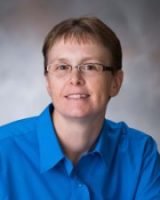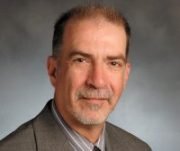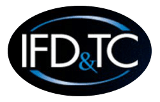2018 Program and Presentations
2018 Attendees
Invited Addresses:
Lessons Learned from Studying Telephone Surveys

Jolene Smyth
Associate Professor, Department of Sociology, University of Nebraska-Lincoln
Director, Bureau of Sociological Research at the University of Nebraska-Lincoln
In 2011, Dr. Smyth and her colleagues received an NSF grant to study telephone surveys. In this talk she summarized what she has learned about interviewers, respondents, and questionnaires from multiple data collections over the last seven years and reflect on the place of telephone surveys in today’s survey environment.
Doctor Smyth teaches graduate-level courses on data collection methods and questionnaire design. Her research broadly focuses on survey measurement and non-response. She is co-author with Don Dillman and Leah Christian of “Internet, Phone, Mail, and Mixed-Mode Surveys: The Tailored Design Method” (2014). Her current projects focus on visual design of questionnaires, mixed-mode surveys, question wording, the design of within-household selection techniques in self-administered surveys, CATI questionnaire design, and interviewer/respondent interactions.
Thoughts, Ruminations, and Twitter-Ready Soundbites on Data Science, Big Data, and Social Science Research

Craig A. Hill
Senior Vice President, Survey, Computing, and Statistical Sciences, RTI International
Using “Big Data” and data science tools, techniques, and approaches to produce (or predict) estimates is often viewed as a threat to the livelihood of statisticians and survey researchers. Often, these “new” tools or approaches are viewed with suspicion, or as being rife with error.
In this talk, Dr. Hill reviews what we know about big data and data science, examines several of the myths and buzzwords being promulgated about big data and data science, and provides several use cases for the audience’s consideration. He will start with definitions of “big data” and “data science” and then begin to unpack these definitions. For example, he’ll delve into the catchphrase, “data is new oil.” What does that mean, exactly? What are the implications for statisticians, survey researchers, and others in our industry?
Finally, Dr. Hill will present several scenarios (use cases) in which researchers have used data science-based approaches to social problems or issues for which we might have used a survey research-based approach in the past.
Craig A. Hill, PhD, has more than 30 years of experience in social science research, directing research projects both large and small for a wide variety of federal, academic, and commercial clients. In addition, Dr. Hill has published and presented papers related to social science methods, including topics as diverse as hospital ranking methodology, interviewer fraud, new technology for social science research, and social media in survey research. In his current role, he sets vision and strategy for the Survey, Computing, and Statistical Sciences Unit, a $150 million business unit that designs and implements projects using a variety of technological, analytical, and methodological approaches. The majority of the unit’s business derives from survey-related projects in which primary data collection (through telephone and in-person interviews, medical record abstraction, clinical report forms, and self-administered paper and web questionnaires) is a main component. The fastest-growing component is the Center for Data Science, which brings new techniques, tools, and approaches to the social sciences.

